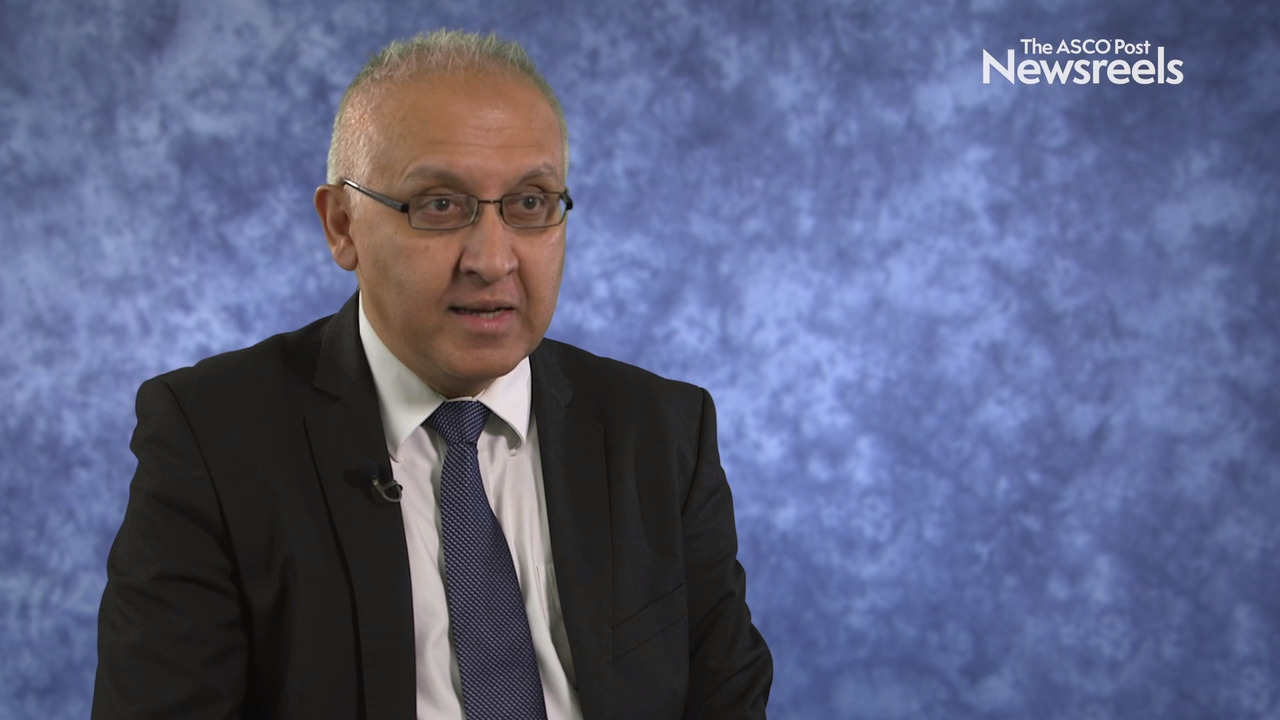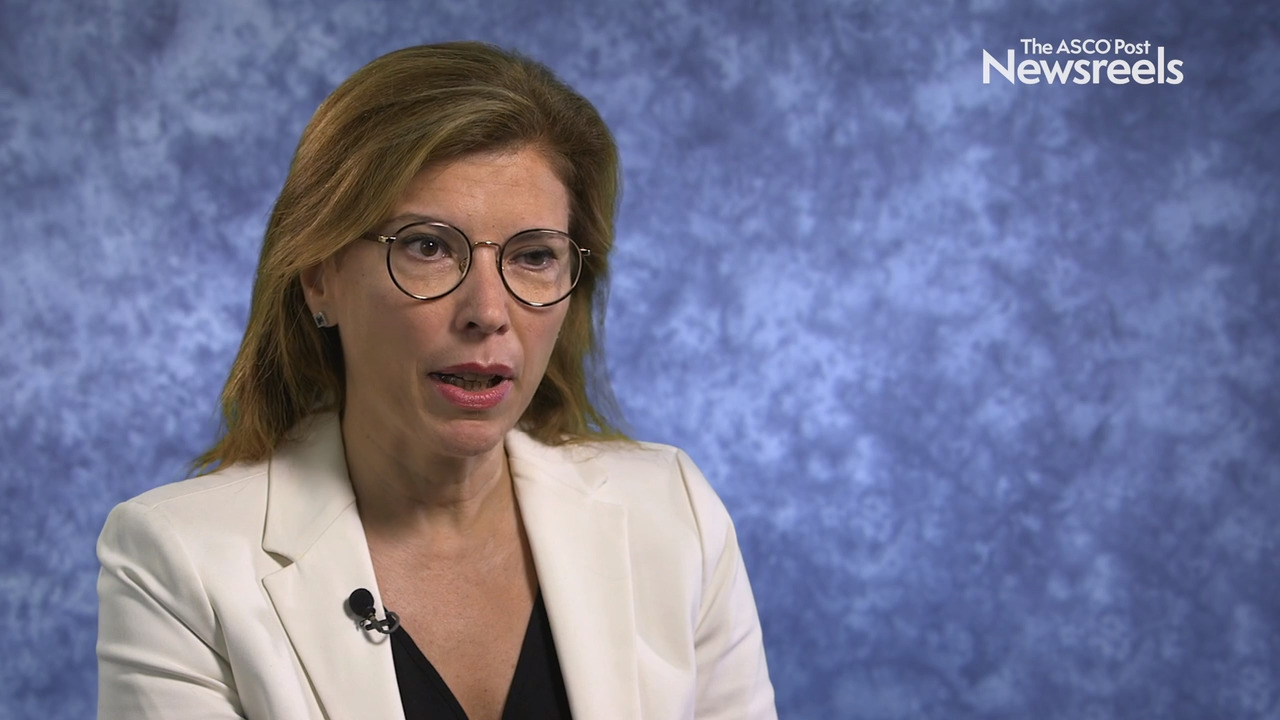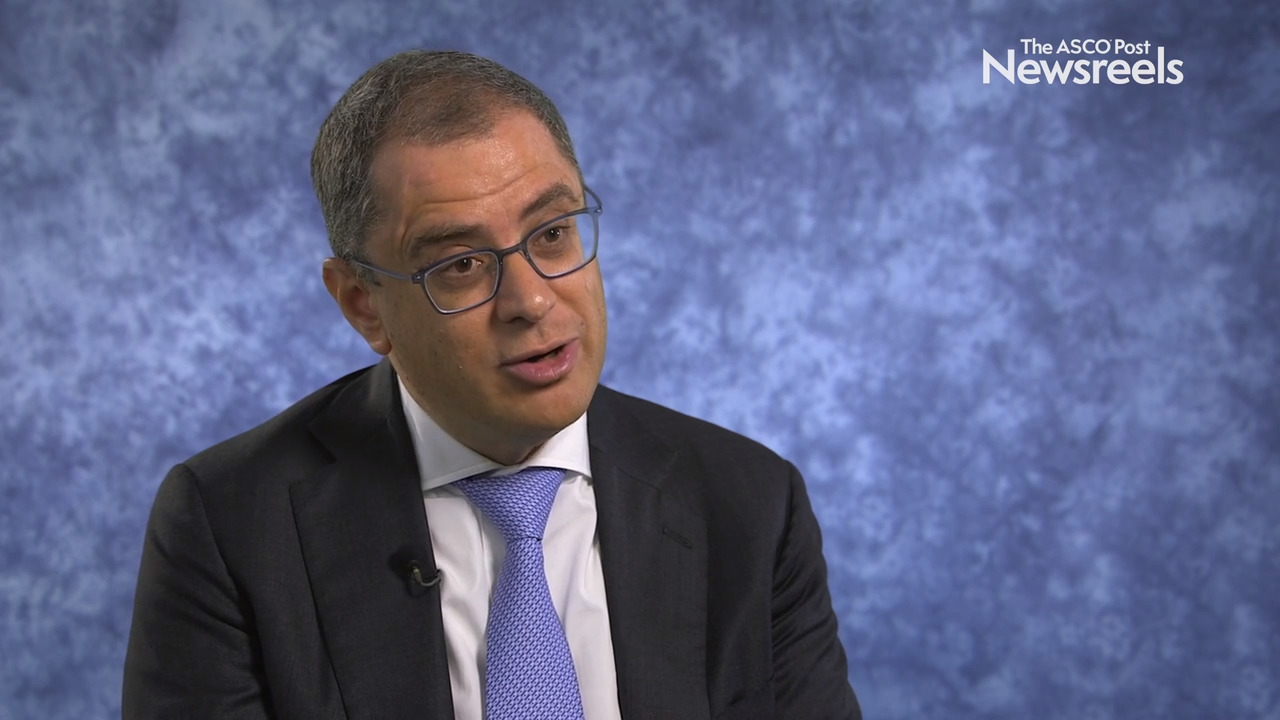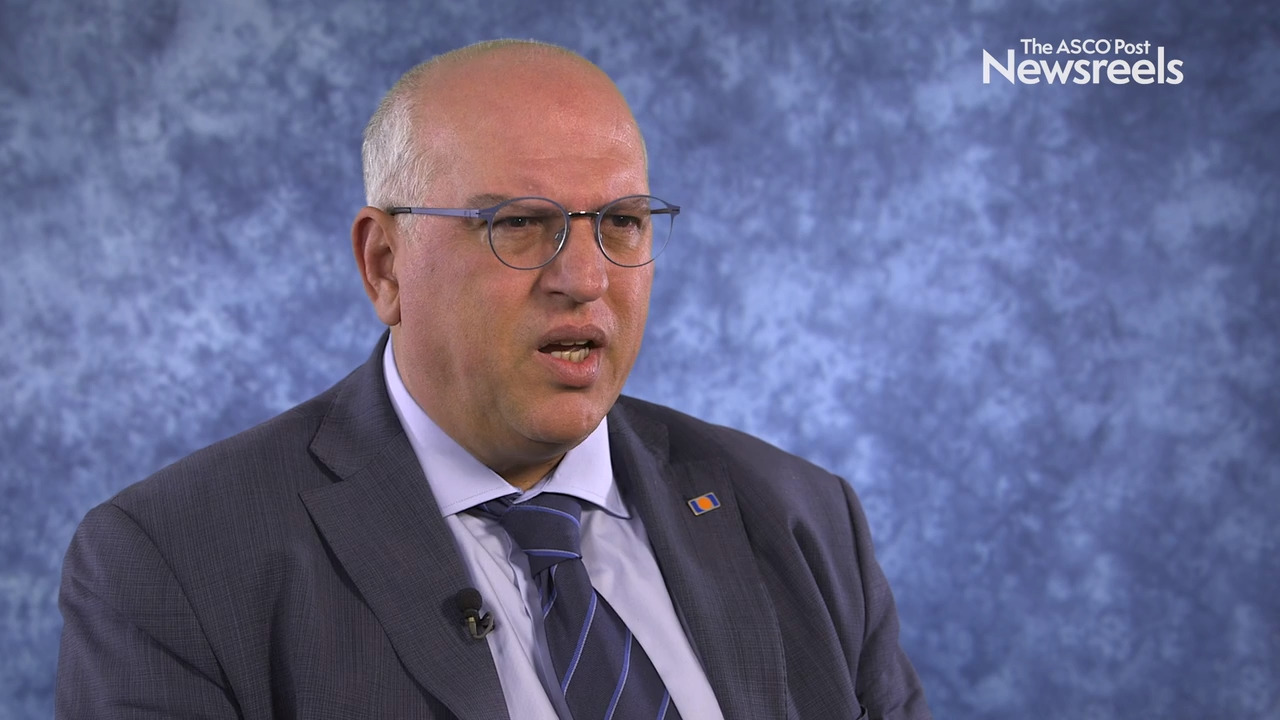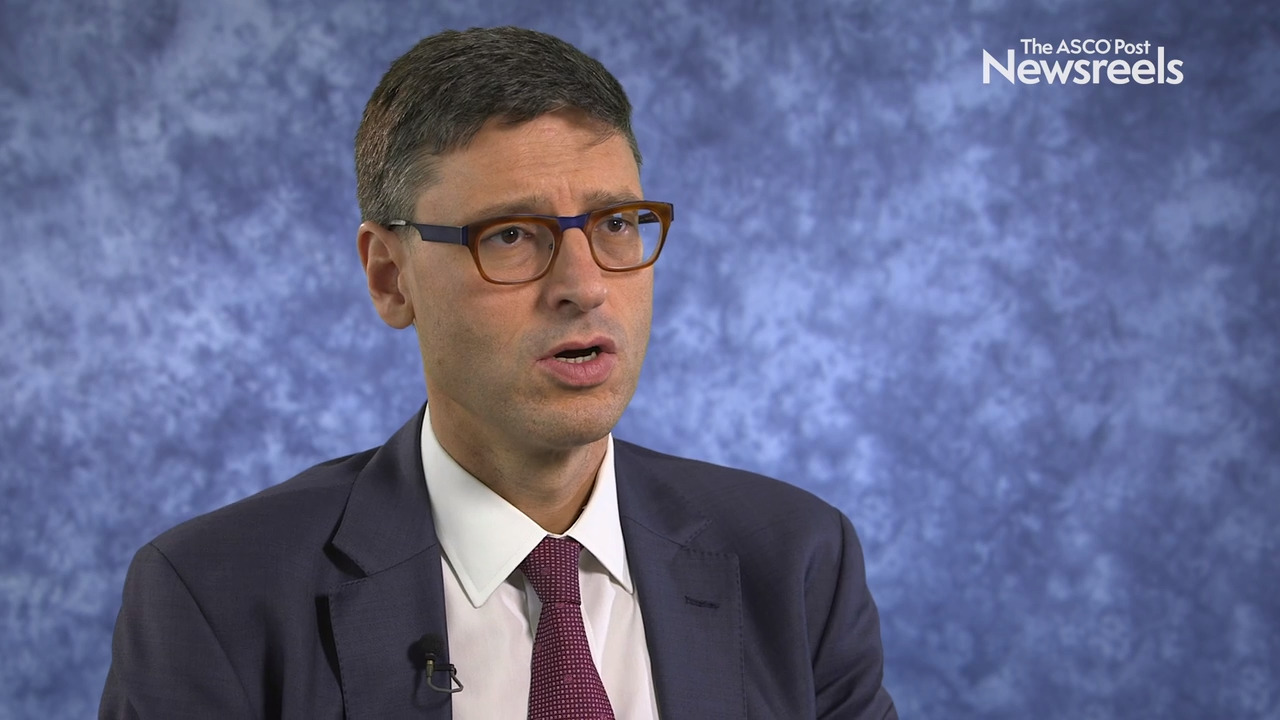Peter Schmid, MD, PhD, on Triple-Negative Breast Cancer: KEYNOTE-522 Trial of Pembrolizumab Plus Chemotherapy
ESMO 2019 Congress
Peter Schmid, MD, PhD, of Queen Mary University of London Barts Cancer Institute, discusses pathologic complete response data from a phase III study of pembrolizumab/chemotherapy vs placebo/chemotherapy as neoadjuvant treatment, followed by pembrolizumab vs placebo as 6-month adjuvant treatment for early triple-negative breast cancer (Abstract LBA8).
Mansoor R. Mirza, MD, of Copenhagen University Hospital, offers his perspective on three studies presented in the Presidential Symposium: the PRIMA/ENGOT-OV26/ GOG-3012 trial (niraparib for newly diagnosed advanced disease); the PAOLA-1/ENGOT-ov25 trial (olaparib plus bevacizumab maintenance therapy in newly diagnosed advanced disease); and the VELIA/COG-3005 study (integrating veliparib with front-line chemotherapy and maintenance therapy) (Abstracts LBA 1–4).
Ana Maria Arance Fernandez, MD, PhD, of the Hospital Clínic de Barcelona, discusses the negative results of the phase III IMspire170 trial, which evaluated cobimetinib/atezolizumab vs pembrolizumab monotherapy in patients with BRAF V600 wild-type melanoma (Abstract LBA69).
Ghassan K. Abou-Alfa, MD, MBA, of Memorial Sloan Kettering Cancer Center, discusses phase III study findings showing improvement in progression-free survival among patients with an isocitrate dehydrogenase 1 (IDH1) mutation who received ivosidenib compared with a similar group that received placebo (Abstract LBA10).
Paolo A. Ascierto, MD, of the Istituto Nazionale Tumori, Napoli, discusses phase III study findings confirming the superior activity of nivolumab vs ipilimumab in resected stage III/IV melanoma in terms of regression-free survival after a minimum follow-up of 36 months (Abstract 1310O).
Antonio González Martín, MD, PhD, of the Clínica Universidad de Navarra, discusses study findings showing niraparib therapy significantly improved progression-free survival in patients with advanced ovarian cancer across biomarker subgroups (Abstract LBA1).
